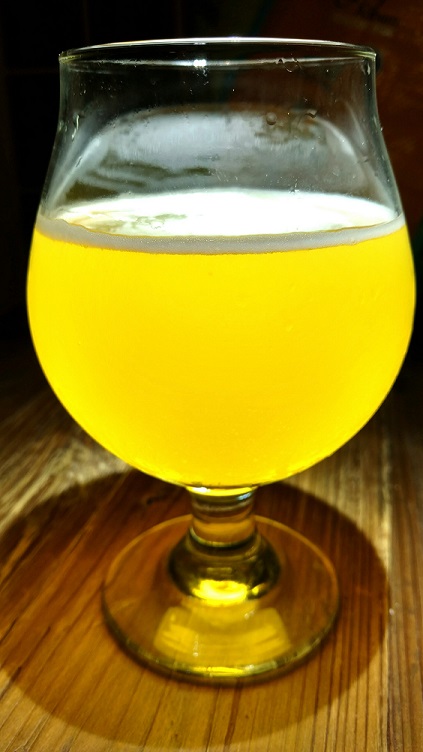My most recent batch has been kegged for a few days now, and it's not as amazing as the last one. The aroma is still pretty good, but the finish is a bit harsh and actually feels a little bit sharp in the back of my throat. A friend described it as "prickly."
I tried to make a lower gravity version by reducing each of the base grains by a pound. But my conversion was also low and brew house efficiency was only 53%. I kept my water additions the same as the last batch, including 1tsp of Lactic Acid. I also changed the dry hop schedule a little bit because of what I had on hand.
Here are the specs:
OG 1.057, FG 1.014, ABV 5.6
.75 Warrior @ 60
1/1/1 Citra/Mosaic/Galaxy in both Whirlpools
Dryhop 1: 1 oz Citra, 2 oz Mosaic @ Day 4
Dryhop 2: 1 oz Mosaic, 2 oz Galaxy @ Day 11
Kegged Day 16 (for some reason there was still a tiny bit of airlock activity)
Water additions:
3g Gypsum
2g Epsom
1g Table Salt
8g CaCl
3g Baking Soda
1tsp Lactic
This was the same water profile as my last batch, which was great.
So, here are some possible explanations for the difference:
1) Too acidic? Maybe the lactic acid was too much, given the lower grain bill, which caused the low conversion and harsh flavor? In retrospect, I should have been less lazy and recalculated the water additions, but I wanted to stick with what worked so well in the last batch.
2) Too young? The airlock activity at Day 16 was weird. Maybe I needed a bigger starter?
3) Too much Galaxy in the second DH? I don't see why this would cause harshness, though.
Interested to hear anyone's thoughts about what could be causing the harsh flavor and throat sharpness.
Thanks!






![Craft A Brew - Safale BE-256 Yeast - Fermentis - Belgian Ale Dry Yeast - For Belgian & Strong Ales - Ingredients for Home Brewing - Beer Making Supplies - [3 Pack]](https://m.media-amazon.com/images/I/51bcKEwQmWL._SL500_.jpg)




















































